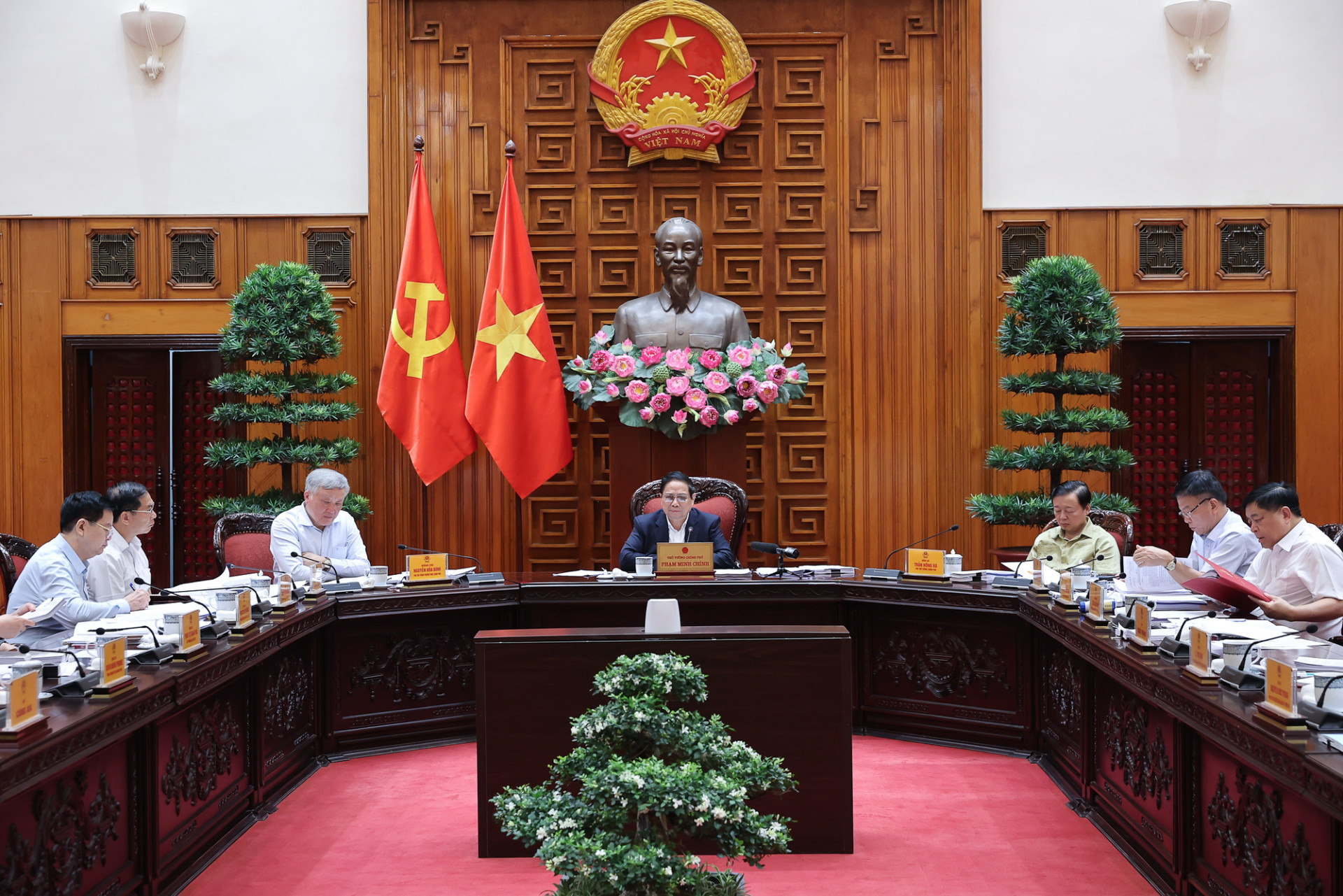Present at the meeting were Politburo member and Permanent Deputy Secretary of the Government Party Committee Nguyen Hoa Binh, along with members of the Party Central Committee, Deputy Prime Ministers, Deputy Secretaries of the Party Committee, and leaders from various ministries and agencies.
In his concluding remarks, Prime Minister Pham Minh Chinh emphasized that implementing the 13th Party Congress’s Resolution requires breakthroughs and acceleration to achieve the two centennial goals. He affirmed that Vietnam has been systematically and effectively deploying tasks and solutions based on inherited achievements and the creative application of past experiences, further refining the vision and actions of the 13th Congress.
He stressed that Vietnam must continue developing and enriching its theoretical foundation on socialism and the path toward socialism, with culture as a vital pillar. This includes Marxism-Leninism, Ho Chi Minh’s ideology, and Vietnam’s millennia-old cultural and historical traditions, creatively adapted to domestic conditions and global context.
Throughout its revolutionary leadership in national liberation, defense, and development, the Party has always viewed culture as a guiding light for the nation. Cultural vitality is seen as the nation’s inner strength; the survival of culture equates to the survival of the nation. It is the spiritual bedrock of society. The Party and State have historically prioritized culture, evident in key documents like the 1943 Outline of Vietnamese Culture, the 1998 Central Resolution 5 (8th Tenure) on developing an advanced Vietnamese culture imbued with national identity, and national cultural conferences held in 1946 and 2021.
Describing the proposal as challenging, the Prime Minister noted it forms part of recent strategic policy initiatives aimed at achieving breakthroughs in major pillars. These include the “four pillar” resolutions from the Politburo on science-technology, innovation and digital transformation; international integration; legal development and enforcement; private sector development, along with upcoming resolutions on education and healthcare reform.
Highlighting the broad scope of “culture,” the Prime Minister called for refining the proposal under the concept: “Globalizing national cultural identity and localizing the world’s cultural essence.” He urged deeper clarification of its scope, targets, guiding principles, and specific tasks and solutions.
The Prime Minister underscored the need for clear objectives through 2030 and 2045, including overarching and specific cultural goals.
He emphasized key guiding principles: ensure Party leadership, contribute to socio-economic development and the two centennial goals, and improve both material and spiritual life. The people must be central, be the beneficiaries, and the drivers of cultural progress. Institutional breakthroughs are needed to mobilize resources, especially public-private partnerships. Cultural products should be commercialized, and cultural professionals should earn a high income from their craft.
He also highlighted essential tasks and solutions: raising public awareness, improving cultural institutions, fostering cultural and entertainment industries, smart management, diversifying funding sources, developing human resources, enhancing public access and enjoyment of culture, and promoting international cooperation.
The Prime Minister assigned the Ministry of Culture, Sports and Tourism to incorporate all feedback and urgently complete the proposal for submission, ensuring both quality and timely delivery.
VGP
